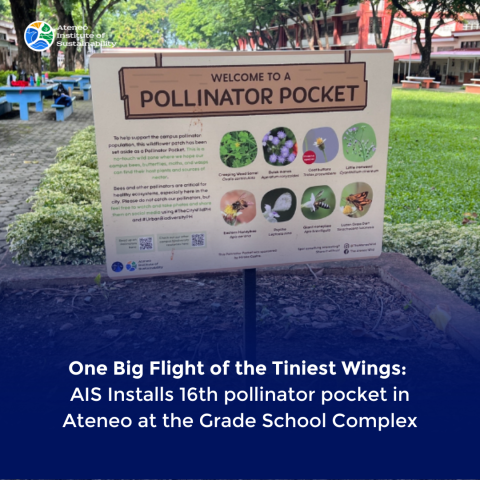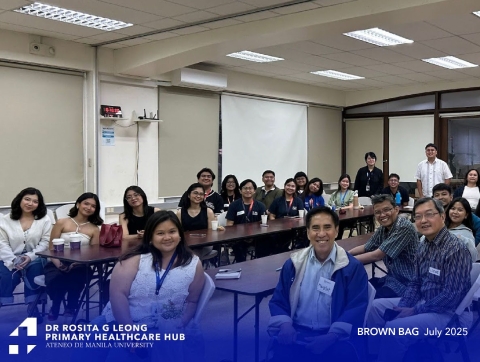Ateneo pilots health promotion playbook, capacitates LGU and homeowners in sustainable and disaster-resilient Housing in Ubay, Bohol
17 Sep 2024
The Ateneo School of Government, through the Ateneo Policy Center (APC), ran the pilot implementation of the Health Promotion Playbook for Healthy Communities (Sustainable and Disaster-Resilient Housing) in Ubay, Bohol from 28-31 August 2024. In collaboration with project partners—the Department of Health - Health Promotion Bureau (DOH-HPB), the Central Visayas Center for Health Development (DOH-CVCHD), and the Technical Assistance Movement for People and Environment, Inc. (TAMPEI)—the team presented the initial draft of the Playbook to the local government and provided training to both LGU officials and homeowners on sustainable and disaster-resilient housing, guided by the Playbook’s Learning Modules.
This pilot is a key component of the DOH-funded Sustainable and Disaster-Resilient Housing project, designed to refine the Playbook before its nationwide rollout. The Playbook will serve as a comprehensive guide for LGUs in establishing sustainable and disaster-resilient housing, covering policy creation, capacity building, and the construction of disaster-resilient homes. The overall goal is to empower local governments and communities to create safer, healthier living environments, especially in the face of increasing climate hazards and natural disasters.
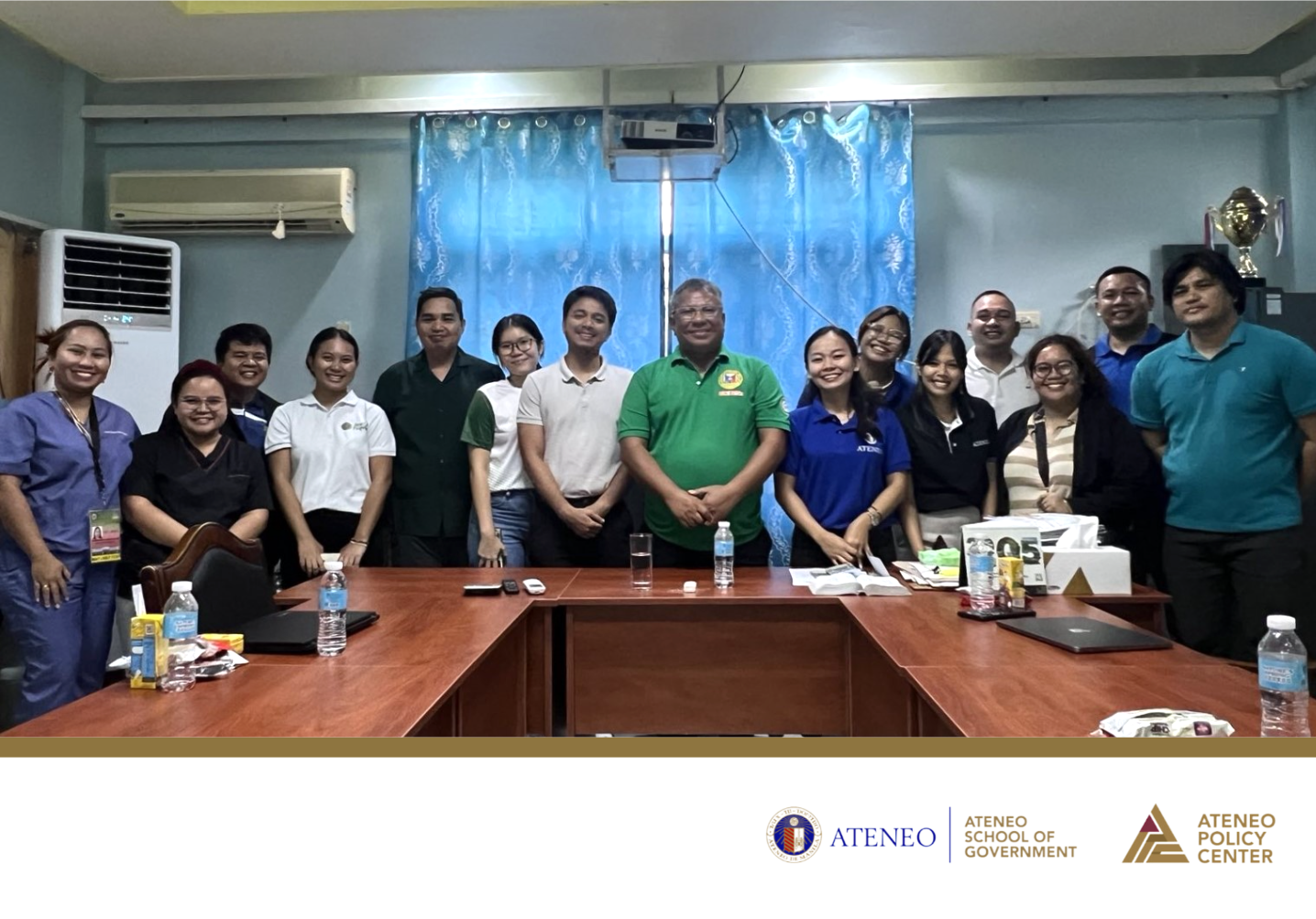
The Municipality of Ubay was chosen as the pilot site due to its susceptibility to hazards and disasters. In December 2021, the municipality was one of the areas hardest hit by Typhoon Rai (locally known as “Odette”), which caused total destruction to 4,174 houses, partial damage to 16,693 houses, and displaced over 23,000 families.
The presentation of the Playbook served as an avenue for local stakeholders to examine its components and provide valuable feedback. Participants raised questions regarding the proposed prototype design and governance structure. Several suggestions were discussed, such as aligning the monitoring and evaluation process with existing assessments by the local disaster risk reduction office and translating information and education materials into the local language for clearer communication.
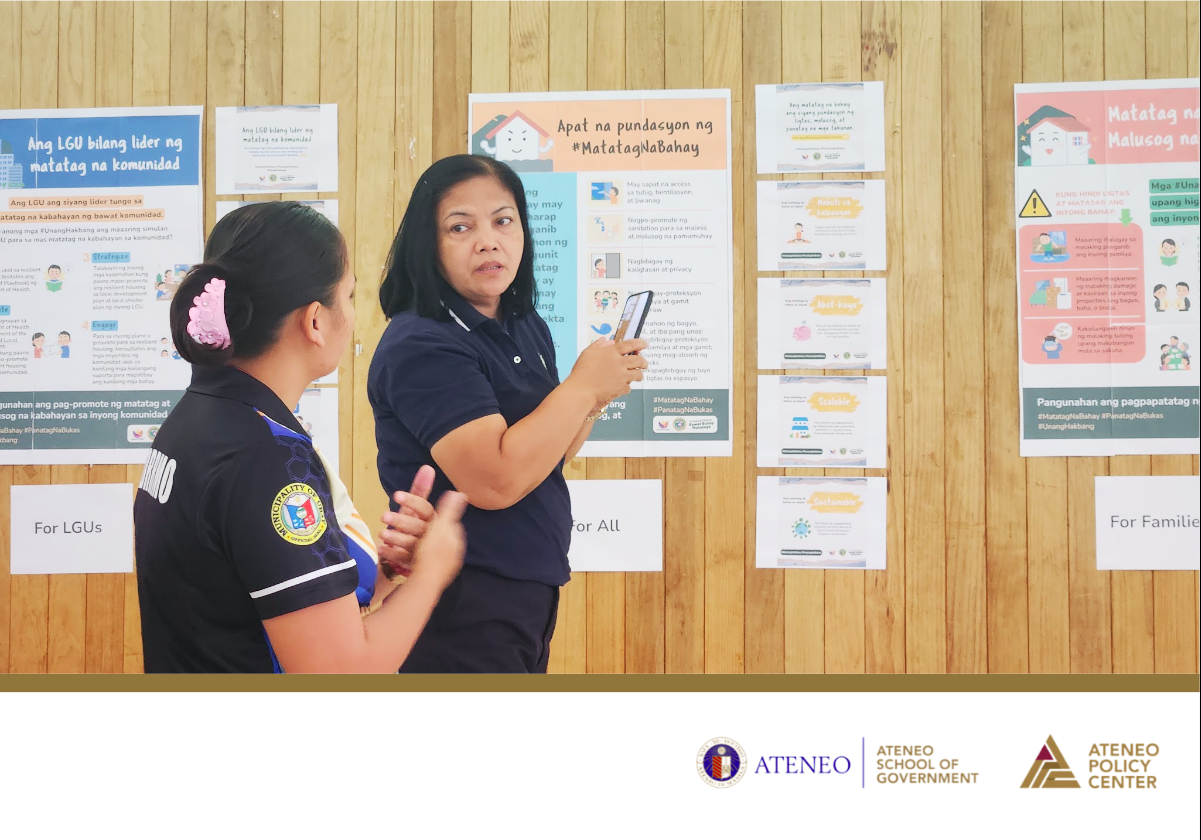
Following the Playbook’s presentation, separate training sessions were conducted for LGU implementers and homeowners. These sessions combined expert-led lectures with hands-on learning exercises.
The training for local implementers focused on deepening their understanding of the role of the LGUs in creating sustainable and resilient homes and communities. It provided an in-depth look at developing local shelter strategies and the processes required to implement these solutions effectively.
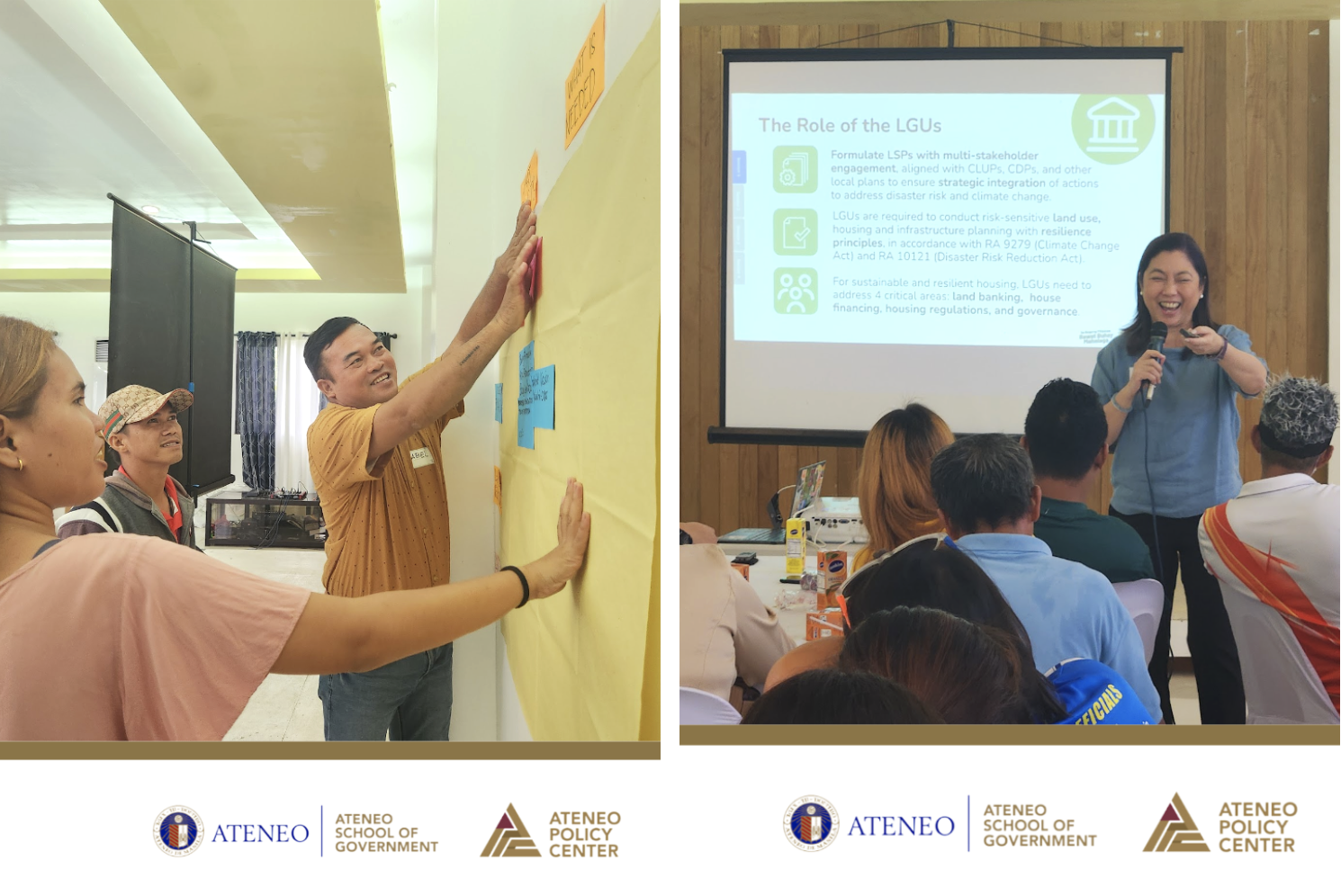
Homeowners, particularly from Barangay Poblacion—a high-risk area in Ubay—received training focused on disaster awareness, hazard identification, and vulnerability assessments. The sessions emphasized the importance of resilient housing, offering participants strategies for retrofitting homes to withstand disasters. Homeowners also learned how to proactively safeguard their families and contribute to creating safer, more resilient communities.
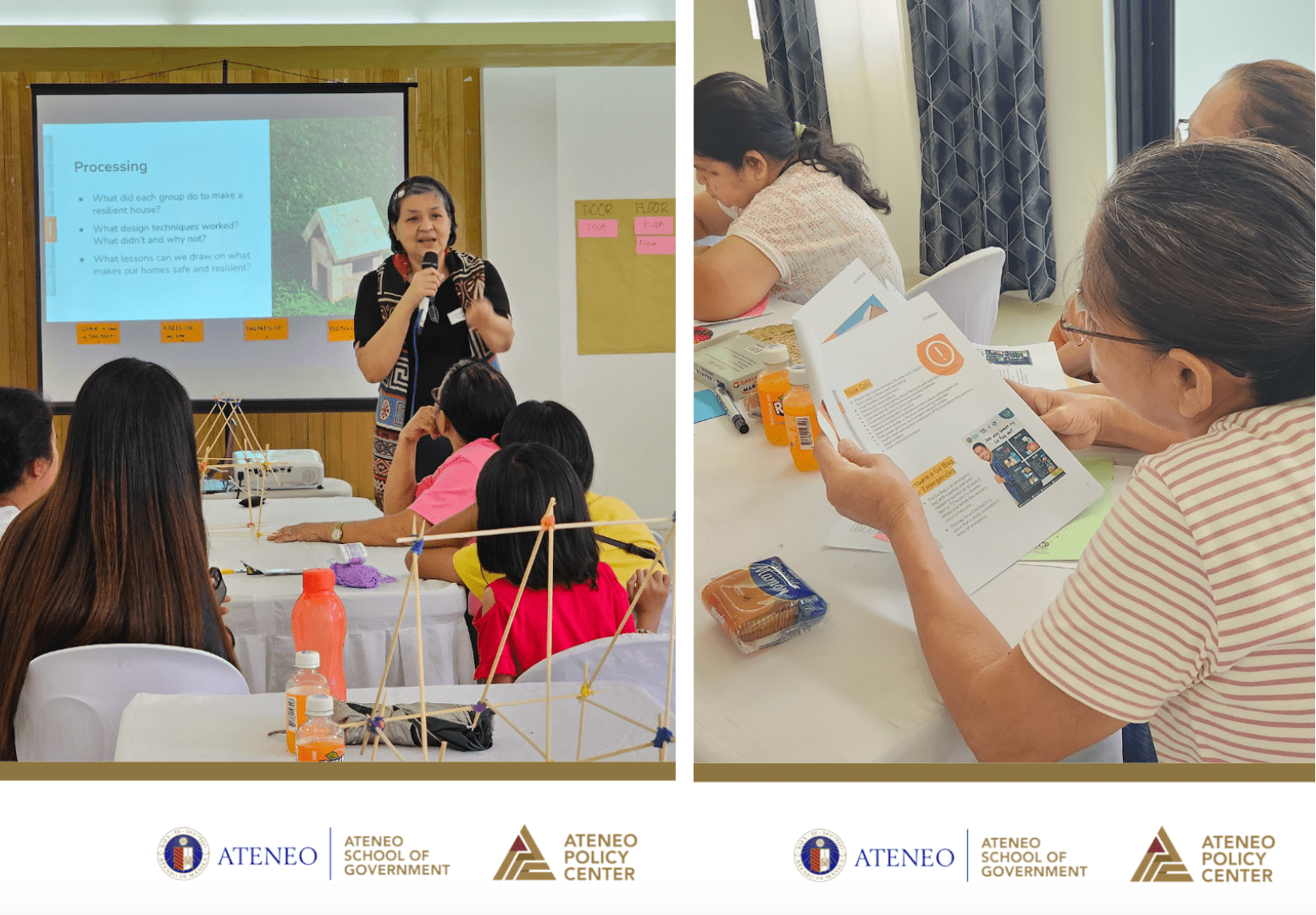
This initiative not only aims to fortify housing against natural disasters but also to foster healthier, safer communities amidst the growing threat of climate-related hazards. With Ubay, Bohol as the pilot site, the project is expected to evolve into a model that can be replicated nationwide, helping communities across the Philippines build resilience from the ground up.




